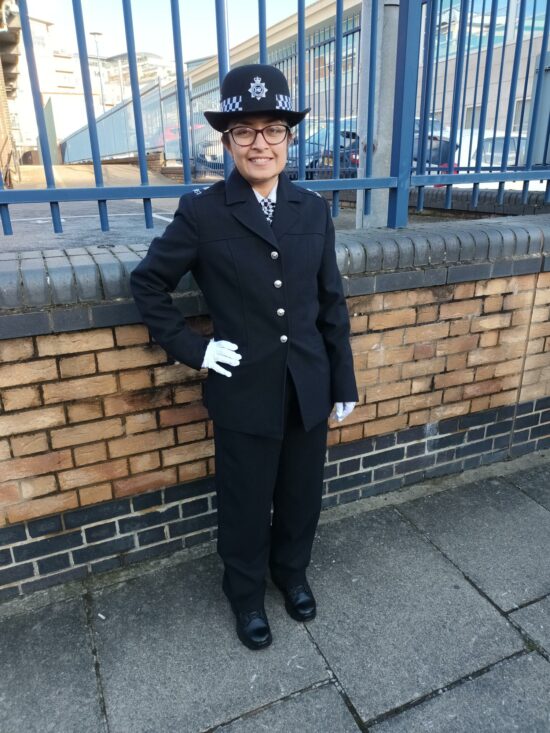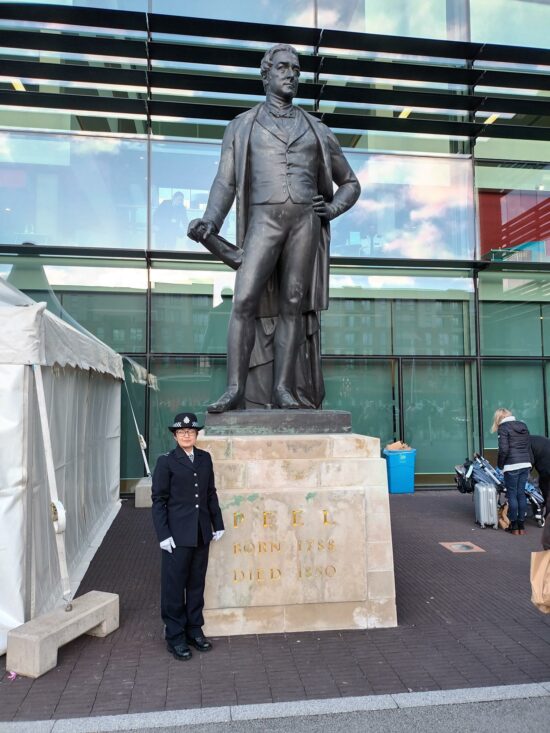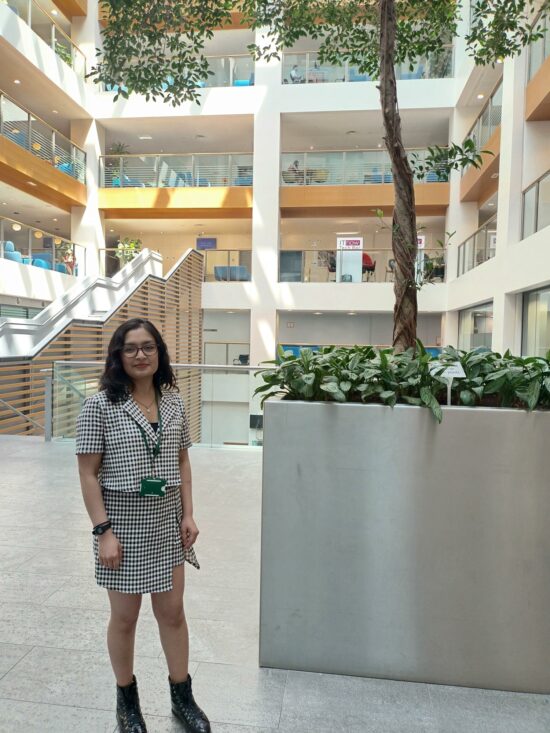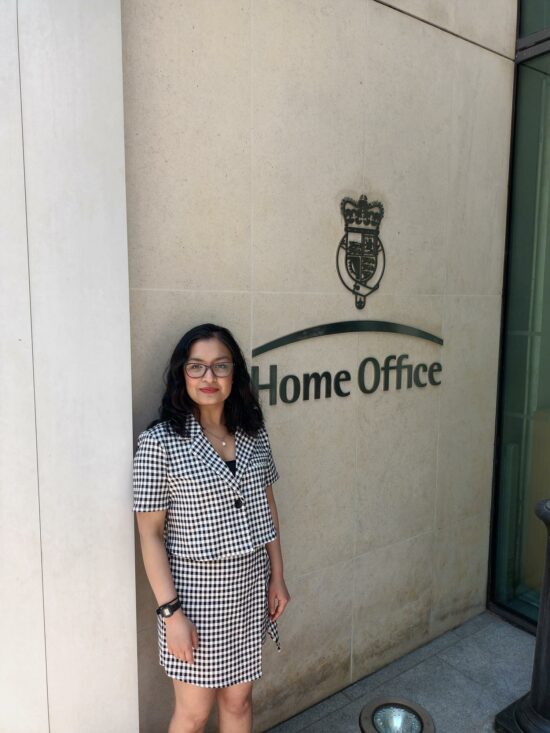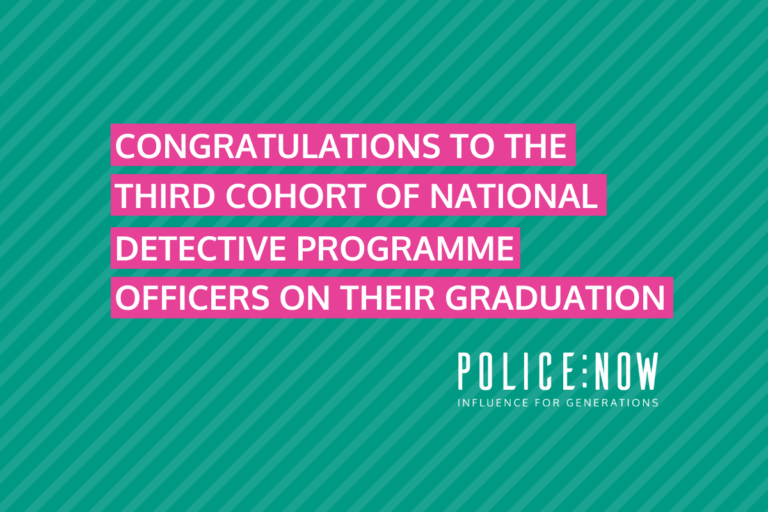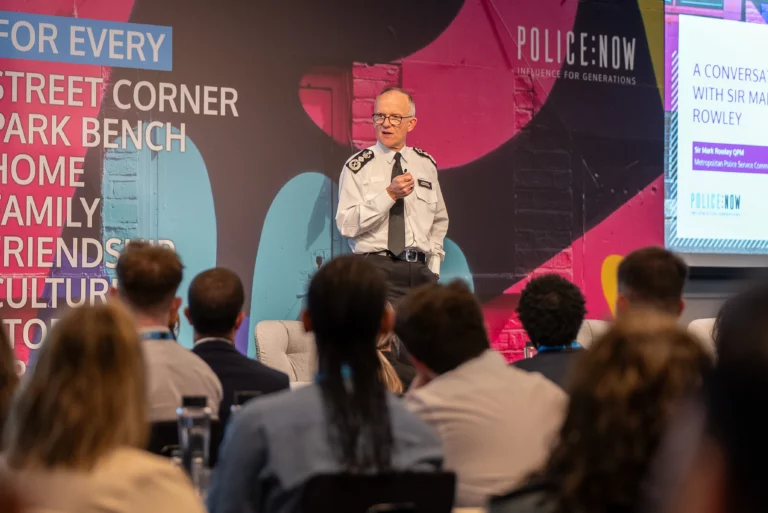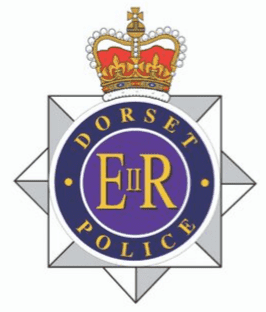PC Durr-e-Maknoon: influencing policy to tackle Violence Against Women and Girls
Monday 16th October 2023
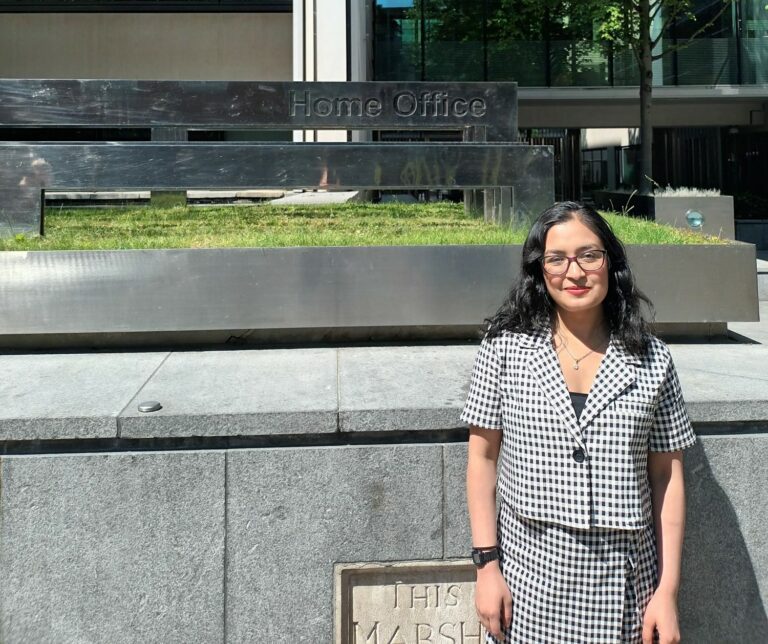
Police Constable Durr-e-Maknoon Tariq joined the Metropolitan Police Service in 2021 via Police Now’s National Graduate Leadership Programme and has worked for the last two years as a neighbourhood police officer in Cranford. Now based in Chiswick Riverside, she continues her work to build public trust and confidence in the police service through delivering exceptional community policing.
As part of Police Now’s programme, Durr-e recently completed a four-week external secondment to the Home Office’s Violence Against Women and Girls policy team in Westminster. Her secondment has allowed her to contribute to government policy and bring a deeper understanding of the police response to domestic abuse and public protection back to her frontline role.
She tells us more about the experience below.
Police Constable Durr-e-Maknoon Tariq
“Coming from an ethnic minority background, Police Now’s entry route into policing really attracted me because of their commitment to equality and diversity. As someone who migrated to the UK as a refugee, I understand the impact that isolation and inequality has on individuals and communities. Through Police Now, I have had the opportunity to work in the local community and listen to the concerns of residents. As a neighbourhood police officer, I have been given the means and tools to start to invoke change within the community.
“During the second year of Police Now’s programme, officers are able to apply for a competitive external secondment opportunity to further their policing knowledge and contribute to other areas of policing. I was recently seconded to the Home Office’s Violence Against Women and Girls (VAWG) policy team, in the Interpersonal Abuse Unit, Public Safety Group. I am passionate about protecting victims of crime and improving the policing response to VAWG, so to secure this secondment was an exciting opportunity. It allowed me to gain an insight into how policies are made and make my own suggestions for how police training around VAWG can be improved.
“During my secondment, I conducted research mapping of the training provisions currently available for frontline officers and new recruits in relation to VAWG, domestic abuse and public protection related offences. As part of this research, I attended high-profile meetings with police chiefs and other senior partners, and I heard a range of strategies and opinions on how policing’s response to VAWG can be improved. I also had meetings with different teams in the Interpersonal Abuse Unit to find out more about what training and resources are currently available across a range of areas.
“There is some excellent training available already, but as a result of my mapping research I was able to offer my personal policy recommendations to the Home Office and College of Policing on how we can further strengthen training around VAWG for frontline officers and new recruits. This mainly focused on the accessibility and organisation of resources and areas where deeper analysis or detail may need to be incorporated into training courses, including in relation to cultural nuances and diversity awareness.
“As a serving frontline officer, I was able to contribute my personal experiences of responding to VAWG, domestic abuse and public protection offences and how policies affect us on the ground. Being able to offer my own perspective and make suggestions as to how policies can be improved for officers working on the frontline has been an excellent experience. Moreover, my research has allowed me to further examine victims’ perspectives and broaden my own knowledge and understanding of certain safeguarding issues and crime. These are skills I have taken back to my operational policing role, as I seek to support those in the community who need my help.
“Policing VAWG including domestic abuse can be an incredibly complex area of policing, which involves building trust amongst communities and victims and supporting people through some of the most difficult and isolating times in their life. I hope the ongoing work I have contributed to will support frontline officers in training and in turn deliver improved outcomes for women and girls in the society we serve.”
Applications for our
National Graduate Leadership Programme are now open
